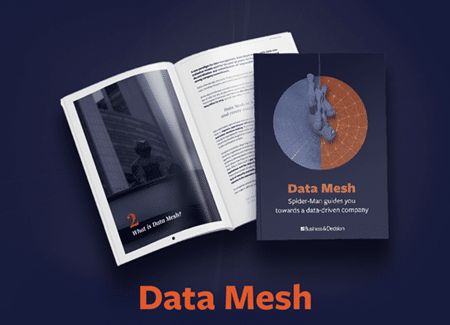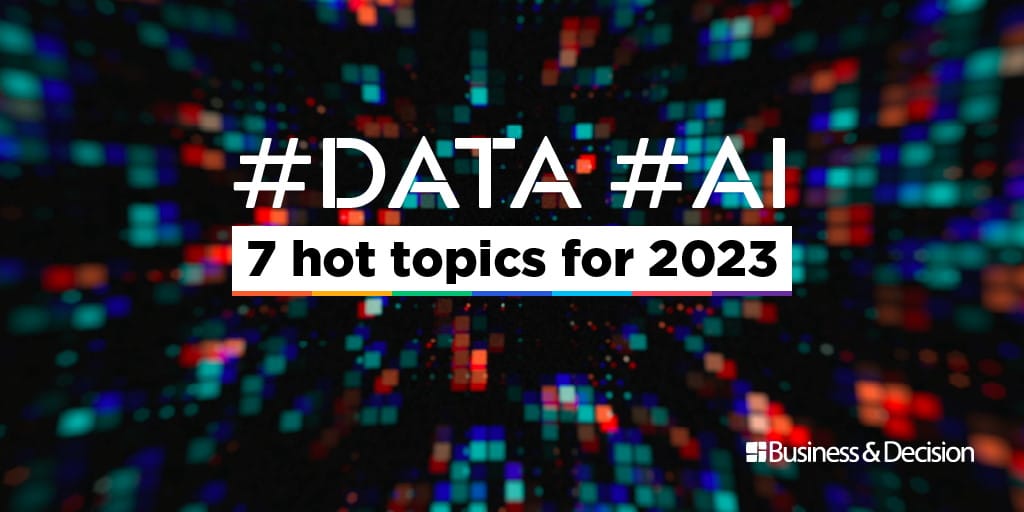Today, everyone agrees that data is fundamental to a business from any point of view. Purchasing online space is no exception to this rule. But what are the newest developments concerning data and the media?

Data for ever more precise targeting
When it comes to purchasing online space, data has revolutionised targeting. It is already a thing of the past when purchasing online space could be summarised as “Tell me what sort of people visit your site, and I’ll buy advertising from you.” We then bought a block of visibility on high-traffic sites, hoping to hit the right target but without any certainty. The cost was often prohibitive and the results rarely convincing.
Today, buying online space is based on far more precise targeting using criteria which can be very narrow: centres of interest, geolocation, behaviour (abandoned basket, products viewed), meteorological criteria, purchases made, etc.
CRM: a goldmine for the media
Traditionally, CRM and online media are two quite distinct entities within a business. On one side we have the customer database and on the other measures seeking to generate new customers. But the border between these two entities has never been so porous.
Today the media needs to feed off the CRM for a simple reason: there is a very high chance that your future customers will resemble your current customers. The data linked with your CRM will, inter alia, enable you to generate an audience of lookalikes (twin marketing).
And it is also possible when buying space to get back to a customer in order to encourage them to buy again, for example by offering complementary products. Offline purchasing data is also fundamental for an optimised omni-channel strategy.
Data tools for buying online space
The evolution of online space purchasing has come about through the use of tools facilitating improvement. Two tools stand out: DMPs (Data Management Platforms) and DSPs (Demand Side Platforms).
DMPs enable data to be aggregated and uses to activate media. Two use cases for a DMP:
- Targeting people on line who have shown a specific type of behaviour with your ecosystem (site or application) or have interacted with your CRM. For example, re-targeting a user who has opened an email but not clicked in another universe is a real help in media.
- Excluding individuals from your targeting. Today it is fundamental to reduce expenses and to be able to exclude or control advertising pressure on a specific target.
DSPs are tools tht allow campaigns to be optimised programmatically. Purchasing is conducted via various ad exchanges. The advantage of these solutions: to be able to continuously optimise campaigns by adapting the target, the message and the different formats. Data is fundamental to these optimisations. It is normal to use DCOs (dynamic creative optimisation, or dynamic banners) in the course of these campaigns.
To these tools must be added attribution analyses. Having a silo-style vision of the levers is no longer an option. It is essential to understand the impact of each of the levers on the process of online purchasing to avoid budgetary arbitrage with no justification. The issue of different channels must also be incorporate to be able to optimise the purchasing of space.
Search engines and social networks are not standing still
Beyond keywords entered into search engines, sponsored links have always used targeting. At first, Google put a lot of emphasis on the local to multiply its customer numbers.
Today we can introduce far more extensive aspects of targeting into sponsored links. Google Adwords can be used to target your customers directly via lists. In addition you can generate audience lists linked to browsing on sites.
Lastly, social networks have the advantage of being able to offer targeting using data explicitly provided by their users.
Geolocation: a power for retail
With the advent of continuously connected smartphones, data on geolocation plays a predominant part in media activation. For example, in the retail world, pushing a specific offer or message to someone close to your store is priceless. Geolocation linked to your CRM tool and the behaviour of mobile web users can enable you to customise your offer drastically.
GDPR and cookie management
Advertisers will need to take account of the new data protection regulation (GDPR). User consent and the purpose of data will be two key points for media. Advertisers will in particular allow users to select the level of cookies used: those fundamental to the correct operation of the site, internal advertising cookies (personalisation or analytics) and partner advertising cookies. It is the latter which will have an impact on the volume of data usable for media.
Data increasingly serves media and this is what will make all the difference to your space purchasing. However you will need to keep an eye on the impact of the GDPR over the next few months.
















Your email address is only used by Business & Decision, the controller, to process your request and to send any Business & Decision communication related to your request only. Learn more about managing your data and your rights.